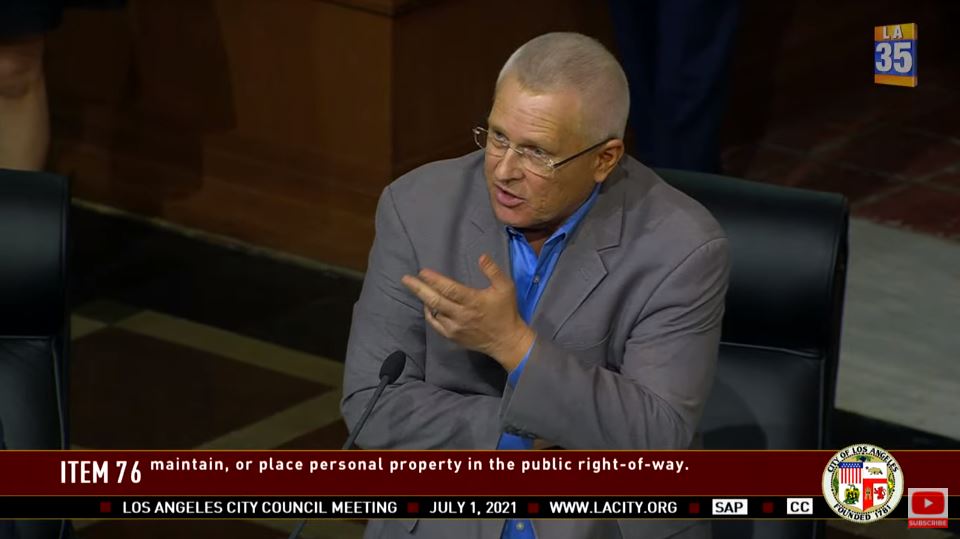Describing his nearly 10 years on the Los Angeles City Council as a “very long, strange trip,” Councilman Mike Bonin bid farewell to the council Wednesday in an emotional speech in the chamber.
Bonin, who has represented portions of the Westside since 2013, has been one of the council’s more progressive members and often cast one of the few dissenting votes on items such as expanding the city’s anti-camping ordinance.
Bonin was in the spotlight earlier this year when his son was the target of racist comments made by then-council President Nury Martinez in a leaked 2021 conversation with two other council members and a top county labor official.
“I’ve had some of the worst moments of my life in this building,” Bonin said. “I have seen some incredible, amazing things come out of this body. I have seen huge achievement, and then I’ve seen scandal and indictments. It has been up and up and down.”
Bonin, who got his start in City Hall as a staffer for then- Councilwoman Ruth Galanter in 1996, had hoped to pull an Irish farewell after announcing he wouldn’t run for a third term in January.
“Events of the last couple months definitely changed those dynamics,” Bonin said.
Bonin said his first term was “a blast” but his second term was “really, really rough.”
“I was able to look myself in the mirror more in my second term,” Bonin said. “I felt that I was making more of an effort to live true to my values.”
Council President Paul Krekorian said that whenever Bonin rose to speak, he would either be “vigorously” nodding his head or rolling his eyes.
“But every time, no matter what it is that you’re speaking about, I always stop to listen carefully,” Krekorian said. “Because I know that what you’re going to say is going to be important to our discussion and to the outcome of our work.”
Bonin admitted it hasn’t been easy criticizing the system “when you’re a byproduct of the system.” He said that his background growing up “as a gay kid in a very conservative, Catholic small town” made him always feel like he didn’t belong.
“Even though I grew up in the system, I still felt like somewhat of an outsider,” said Bonin, who was born and raised in Clinton, Massachusetts. “The longer I was here, the more I felt like there were artificial lines and artificial limits that needed to be broken, particularly as the world changed.”
Bonin, who will be replaced by Traci Park next week, said he was guided by trying to understand where people’s anger was coming from. If people were angry because they were being denied opportunities, rights or resources rather than not wanting to share in their wealth, he always gave the former group “a lot of latitude.”
“My guiding principle as a result of all that is inaction is worse than controversy,” Bonin said. “So I embraced a lot of controversies.”
Bonin, who has been open about once battling drug and alcohol addiction, said that he believes “anything is possible” after becoming sober.
“I think the best parts about us, all of us, are the broken parts,” Bonin said. “The best parts about us are the wounded parts. The best parts about us are the flawed parts. And when we see each other there, and when we touch each other there, that’s like holy.”
To those who have asked why he keeps speaking up during meetings even in casting dissenting votes, Bonin noted that there were people who needed to hear what he had to say.
“Even if my position wasn’t going to win, there was somebody out there who needed to know that people in government heard them and was trying to do what they wanted,” Bonin said.







